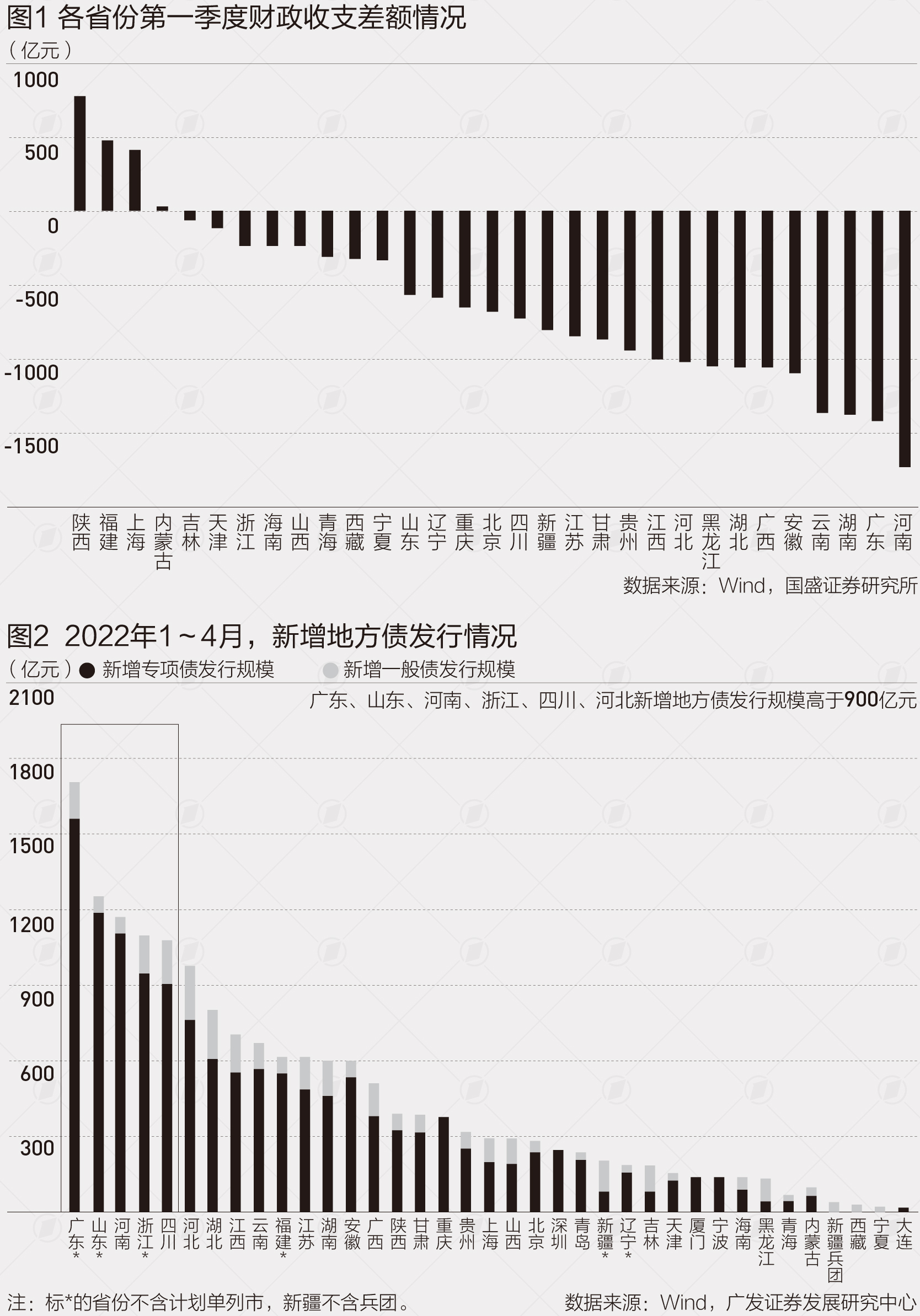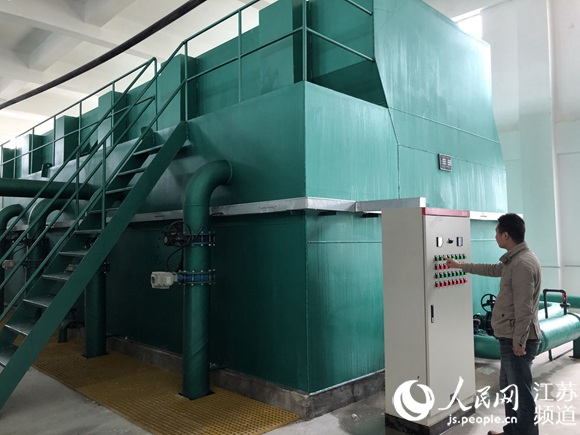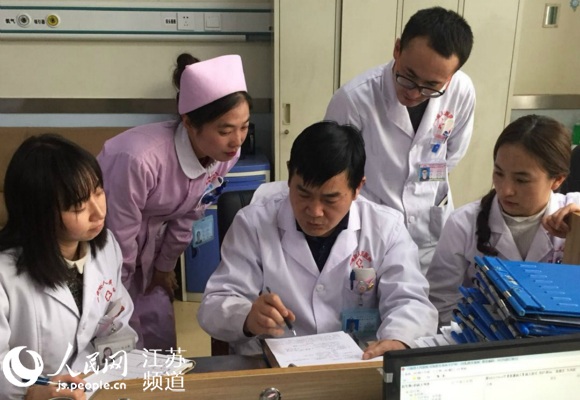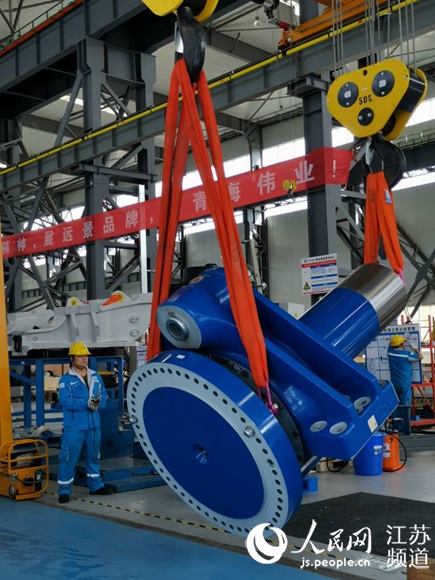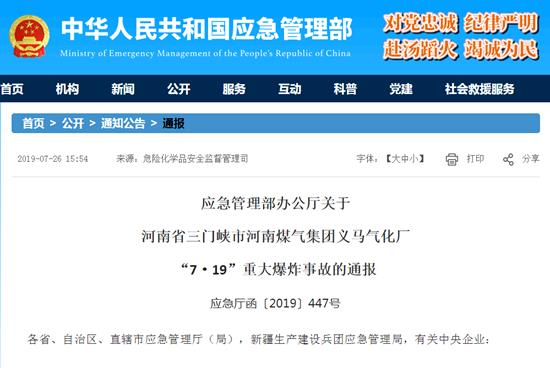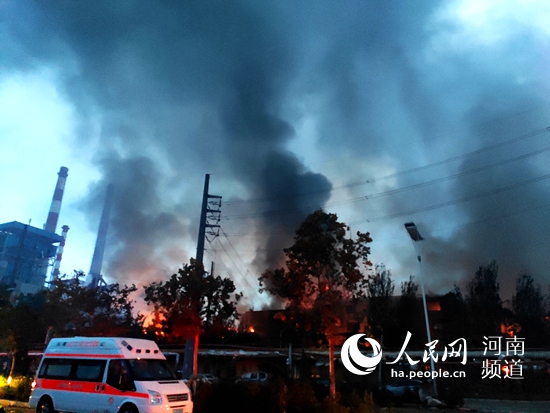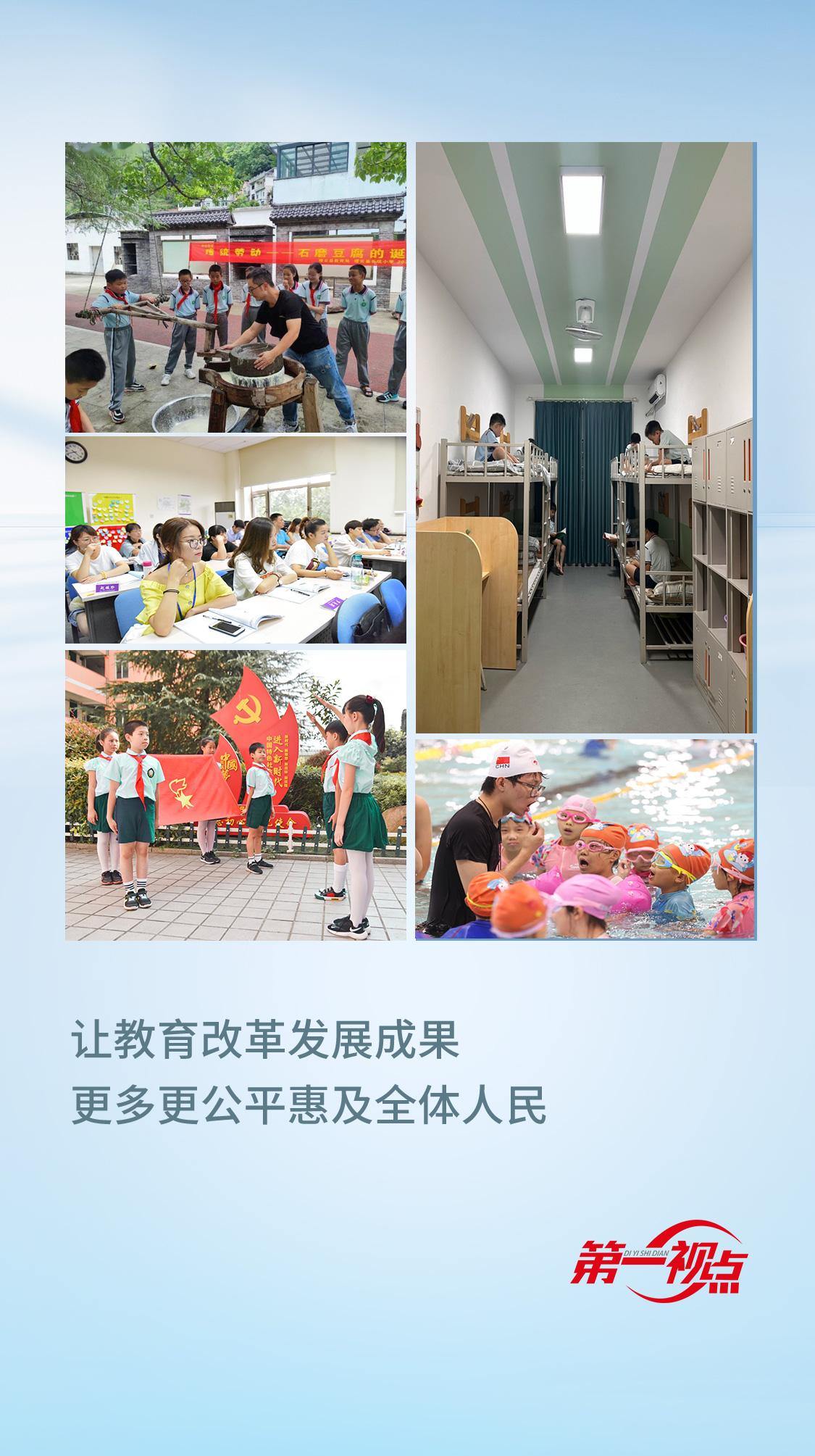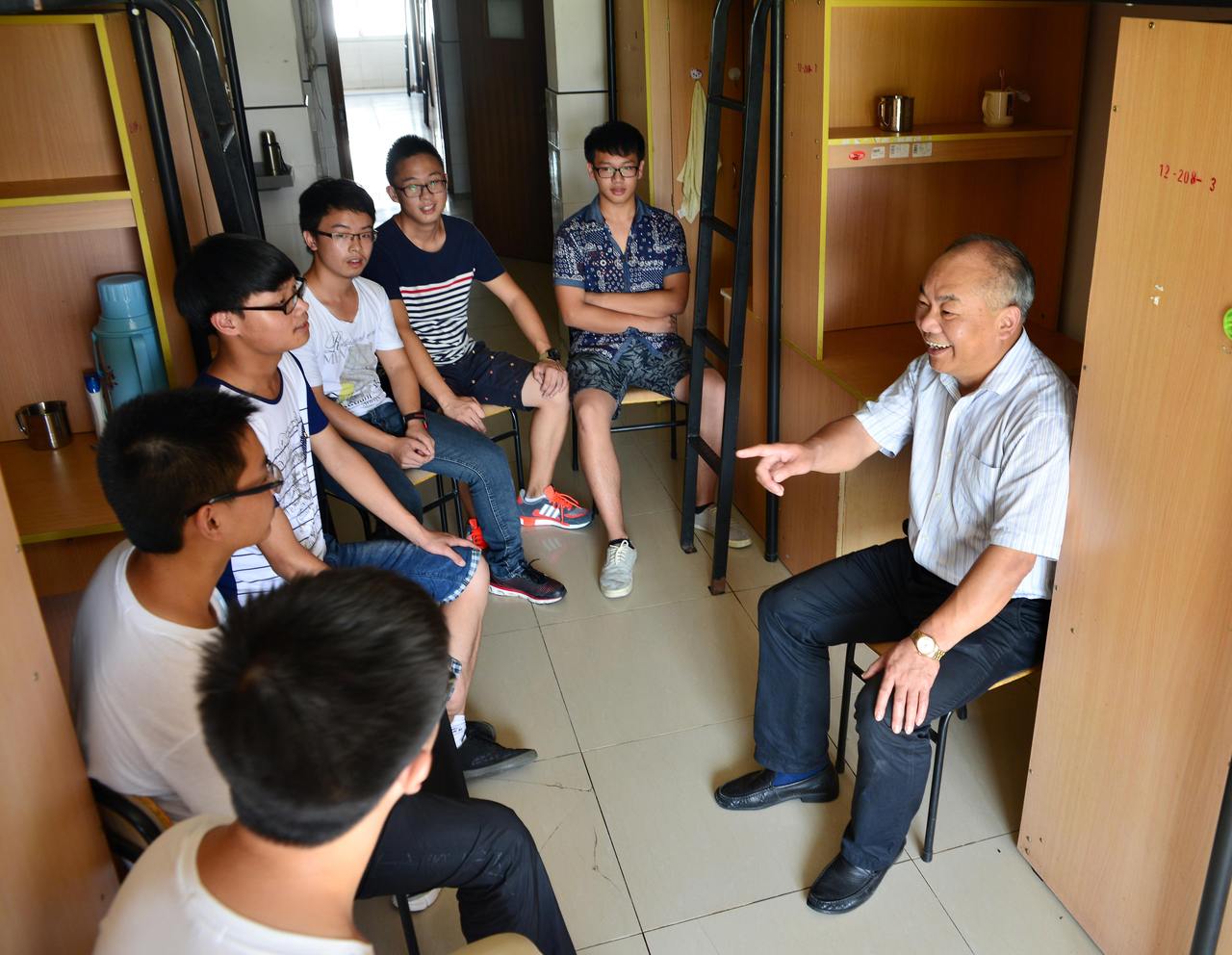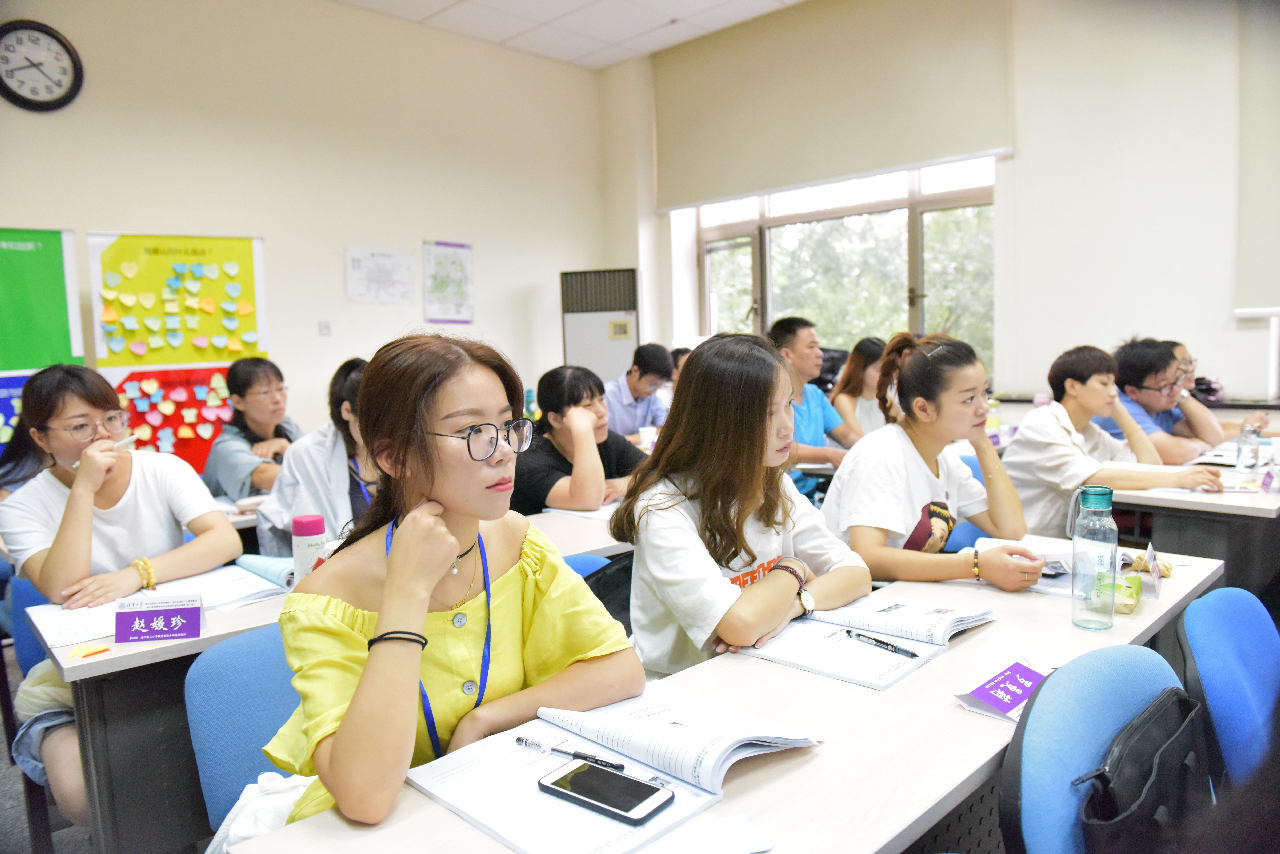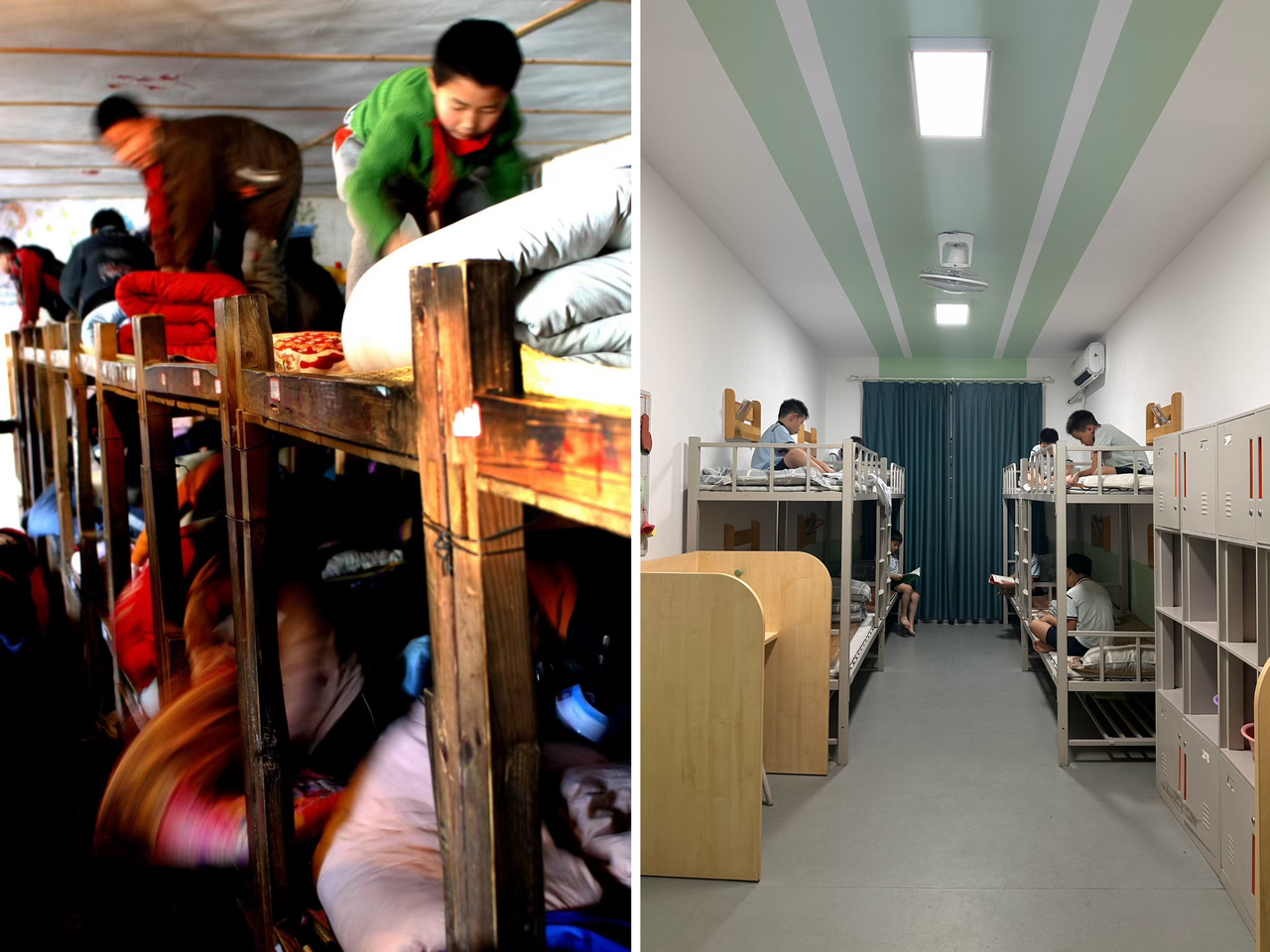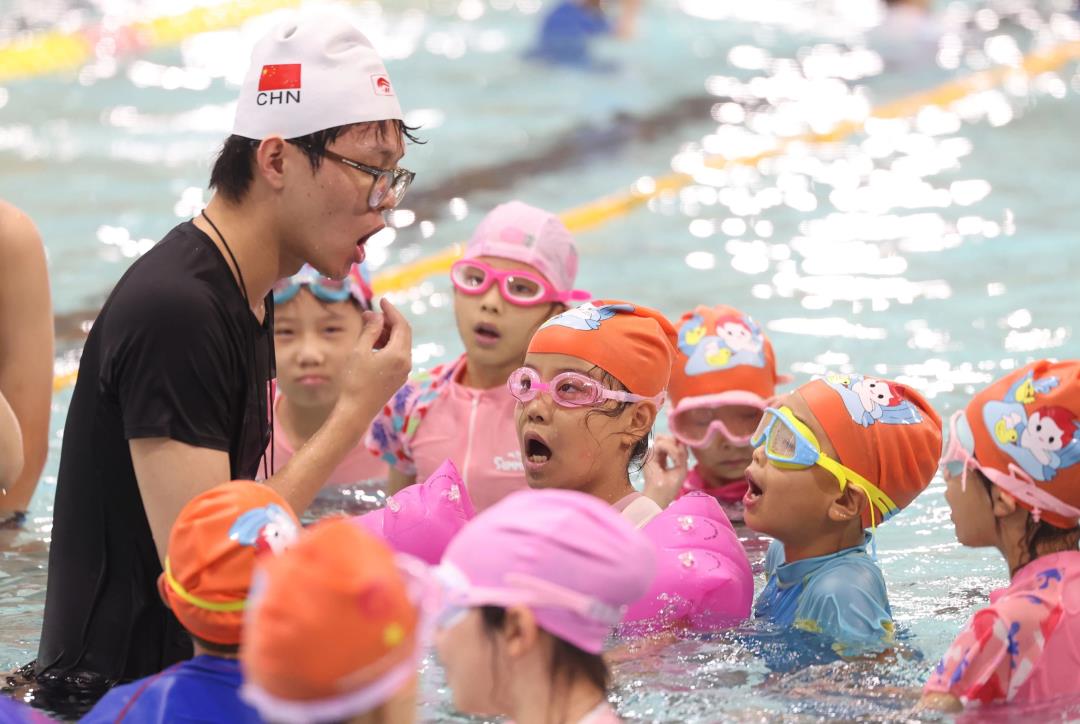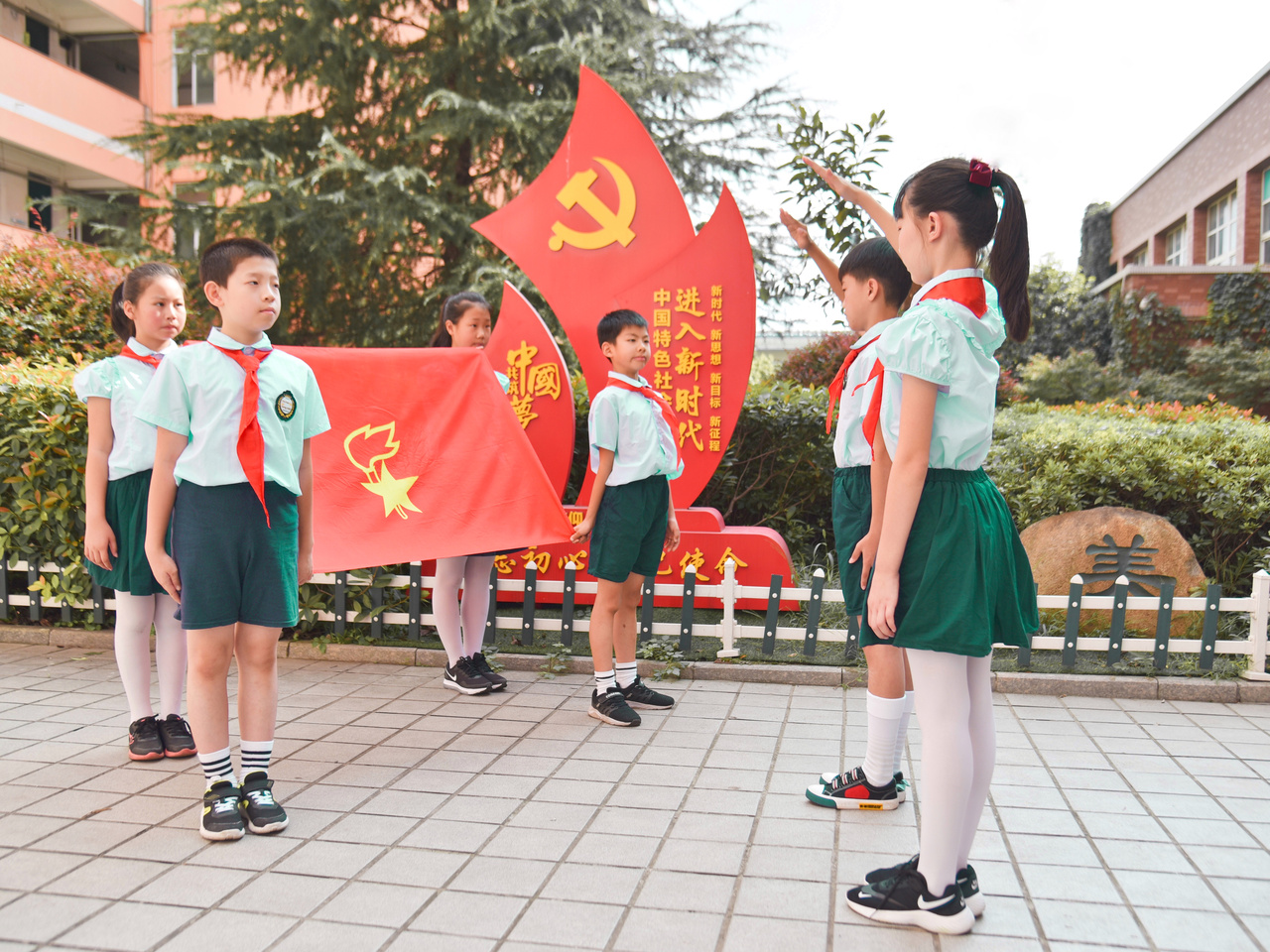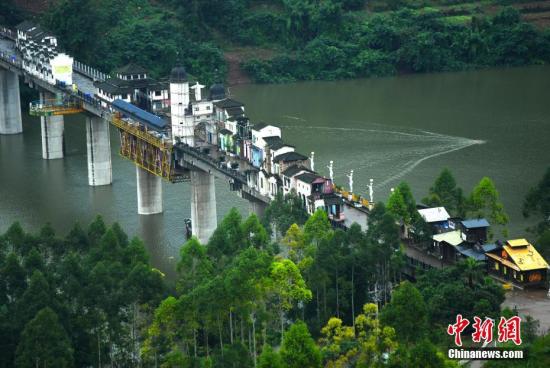Enactment amendment
Adopted at the 17th meeting of the 10th the NPC Standing Committee on August 28th, 2005, promulgated by Decree No.38 of the President of the People’s Republic of China on August 28th, 2005, and effective as of March 1st, 2006; According to the 29th meeting of the 11th the NPC Standing Committee on October 26th, 2012, promulgated by Decree No.67 of the President of the People’s Republic of China on October 26th, 2012, and implemented since January 1st, 2013, the Decision of the NPC Standing Committee on Amending the Law of People’s Republic of China (PRC) on Public Security Administration Punishment; Adopted by the 29th meeting of the 11th the NPC Standing Committee of People’s Republic of China (PRC) on October 26th, 2012, and shall come into force on January 1st, 2013.
Legal content
Chapter I General Provisions
Article 1 This Law is formulated for the purpose of maintaining public order, ensuring public safety, protecting the legitimate rights and interests of citizens, legal persons and other organizations, and standardizing and ensuring that public security organs and their people’s police perform their duties of public security administration according to law.
Article 2 Whoever disturbs public order, impairs public safety, infringes upon personal rights and property rights, impairs social management and is socially harmful and constitutes a crime in accordance with the provisions of the Criminal Law of People’s Republic of China (PRC) shall be investigated for criminal responsibility according to law; If it is not serious enough for criminal punishment, the public security organ shall impose administrative penalties for public security in accordance with this law.
Article 3 The provisions of this Law shall apply to the procedures of administrative penalties for public security; Where there are no provisions in this law, the relevant provisions of the Administrative Punishment Law of the People’s Republic of China shall apply.
Article 4 This Law shall apply to acts that violate the administration of public security within the territory of People’s Republic of China (PRC), except as otherwise provided by law.
Unless otherwise specified by law, this Law shall apply to acts that violate the administration of public security on ships and aircraft in People’s Republic of China (PRC).
Fifth public security management punishment must be based on facts, and the nature, circumstances and social harm of violations of public security management are equivalent.
The implementation of public security management punishment should be open and fair, respect and protect human rights, and protect the personal dignity of citizens.
Handling public security cases should adhere to the principle of combining education with punishment.
Article 6 People’s governments at all levels shall strengthen the comprehensive management of social security and take effective measures to resolve social contradictions, enhance social harmony and maintain social stability.
Article 7 The public security department of the State Council is responsible for the administration of public security throughout the country. The public security organs of local people’s governments at or above the county level shall be responsible for the administration of public security within their respective administrative areas.
The jurisdiction of public security cases shall be stipulated by the public security department of the State Council.
Article 8 If an act violating the administration of public security causes damage to others, the actor or his guardian shall bear civil liability according to law.
Article 9 The public security organ may mediate and handle minor acts that violate the administration of public security, such as fighting or damaging other people’s property caused by civil disputes. If the parties reach an agreement through mediation by the public security organ, they will not be punished. If the mediation fails to reach an agreement or fails to perform after reaching an agreement, the public security organ shall, in accordance with the provisions of this Law, punish the violator of public security administration and inform the parties concerned that they can bring a civil lawsuit to the people’s court in accordance with the law.
Chapter II Types and Application of Punishment
Tenth types of public security management punishment are divided into:
(1) warning;
(2) a fine;
(3) Administrative detention;
(4) Revoking the license issued by the public security organ.
Foreigners who violate the administration of public security may be additionally applied to leave the country within a time limit or be deported.
Article 11 contraband such as drugs and obscene articles, gambling paraphernalia, paraphernalia for taking or injecting drugs, and my own tools directly used to commit acts violating the administration of public security seized in handling public security cases shall be confiscated and dealt with according to regulations.
Property obtained in violation of public security administration shall be recovered and returned to the infringed person; If there are no infringers, they shall be registered, auctioned in public or disposed of in accordance with relevant state regulations, and the proceeds shall be turned over to the state treasury.
Twelfth people over the age of 14 but under the age of 18 who violate the administration of public security shall be given a lighter or mitigated punishment; Persons under the age of 14 who violate the administration of public security shall not be punished, but their guardians shall be ordered to strictly discipline them.
Thirteenth mental patients who violate the administration of public security when they can’t identify or control their own behavior shall not be punished, but their guardians shall be ordered to strictly guard and treat them. Intermittent mental patients who violate the administration of public security when they are mentally normal shall be punished.
Fourteenth blind or deaf and dumb people who violate the administration of public security may be given a lighter, mitigated or not punished.
Fifteenth drunken people who violate the administration of public security shall be punished.
If a drunken person is in danger to himself or threatens the personal, property or public safety of others, protective measures should be taken to restrain him until he wakes up.
Sixteenth there are two or more violations of public security management, decided separately, combined execution. If the punishment of administrative detention is combined, the longest time shall not exceed 20 days.
Seventeenth joint violations of public security management, according to the role of the violator in the violation of public security management, were punished.
Those who instigate, coerce or trick others into violating the administration of public security shall be punished according to their acts of instigation, coercion or deception.
Article 18 If a unit violates the administration of public security, the person directly in charge and other directly responsible personnel shall be punished in accordance with the provisions of this Law. If other laws and administrative regulations provide for the punishment of the same act, the punishment shall be in accordance with its provisions.
Nineteenth violation of public security management in any of the following circumstances, mitigated punishment or no punishment:
(a) the circumstances are particularly minor;
(two) take the initiative to eliminate or mitigate the illegal consequences, and obtain the understanding of the infringed;
(3) Being coerced or deceived by others;
(four) voluntarily surrender, truthfully state their illegal acts to the public security organs;
(5) Having rendered meritorious service.
Twentieth violation of public security management in any of the following circumstances, shall be given a heavier punishment:
(1) Having serious consequences;
(2) instigating, coercing or tricking others into violating the administration of public security;
(three) to take revenge on informants, accusers, informants and witnesses;
(4) Having been punished by public security administration within 6 months.
Article 21 If an offender who violates the administration of public security is under any of the following circumstances and should be given administrative detention punishment according to this Law, the administrative detention punishment shall not be executed:
(a) has reached the age of 14 but under the age of 16;
(2) Having reached the age of 16 but under the age of 18, violating the administration of public security for the first time;
(three) more than 70 years old;
(four) pregnant or nursing their own baby under one year old.
Twenty-second violations of public security management have not been discovered by the public security organs within 6 months, and will not be punished.
The time limit prescribed in the preceding paragraph shall be counted from the date of the violation of public security administration; If the violation of public security management has a continuous or continuous state, it shall be counted from the date of the end of the act.
Chapter III Acts and Penalties for Violation of Public Security Administration
Section 1 Acts and penalties for disturbing public order
Twenty-third one of the following acts, a warning or a fine of 200 yuan; If the circumstances are serious, they shall be detained for more than 5 days and less than 10 days, and may also be fined for 500 yuan:
(1) Disrupting the order of organs, organizations, enterprises and institutions, resulting in work, production, business, medical treatment, teaching and scientific research not being carried out normally, but causing no serious losses;
(2) disturbing the order of stations, ports, docks, airports, shopping malls, parks, exhibition halls or other public places;
(3) disturbing the order on buses, trams, trains, ships, aircraft or other public transport;
(four) illegal interception or forced boarding, boarding motor vehicles, ships, aircraft and other means of transport, affecting the normal running of vehicles;
(5) Disrupting the election order conducted according to law.
Whoever gathers people to commit the acts mentioned in the preceding paragraph shall be detained for more than 10 days and less than 15 days, and may also be fined up to 1000 yuan.
Twenty-fourth any of the following acts, disrupting the order of large-scale mass activities such as culture and sports, shall be given a warning or a fine of not more than 200 yuan; If the circumstances are serious, they shall be detained for more than 5 days and less than 10 days, and may also be fined for 500 yuan:
(a) forced to enter the venue;
(two) in violation of regulations, setting off fireworks or other items in the venue;
(three) display insulting slogans, banners and other items;
(4) Besieging referees, athletes or other staff members;
(five) throwing debris into the venue, not listening to stop;
(six) other acts that disrupt the order of large-scale mass activities.
Those who are punished by detention for disturbing the order of sports competitions may also be ordered not to enter sports venues to watch similar competitions within 12 months; Those who enter sports venues in violation of regulations are forcibly taken away from the scene.
Twenty-fifth anyone who commits one of the following acts shall be detained for more than 5 days and less than 10 days, and may also be fined up to 500 yuan; If the circumstances are minor, they shall be detained for less than 5 days or fined for less than 500 yuan:
(a) spreading rumors, lying about dangerous situations, epidemic situations, police situations or deliberately disturbing public order by other means;
(2) Disrupting public order by throwing false explosive, toxic, radioactive and corrosive substances or infectious disease pathogens;
(3) Threatening to set fire, explode or throw dangerous substances to disturb public order.
Twenty-sixth one of the following acts, shall be detained for more than 5 days and less than 10 days, and may be fined up to 500 yuan; If the circumstances are serious, they shall be detained for more than 10 days and less than 15 days, and may also be fined in 1000 yuan:
(a) gang fights;
(2) Chasing or intercepting others;
(three) extort or arbitrarily damage or occupy public or private property;
(four) other acts of provocation.
Twenty-seventh anyone who commits one of the following acts shall be detained for more than 10 days and less than 15 days, and may also be fined up to 1000 yuan; If the circumstances are relatively minor, they shall be detained for more than 5 days and less than 10 days, and may also be fined in 500 yuan:
(1) Organizing, instigating, coercing, cajoling or inciting others to engage in cult, cult or superstitious activities, disrupting social order and harming others’ health;
(two) using religion or qigong to disrupt social order and harm the health of others.
Article 28 Whoever, in violation of state regulations, intentionally interferes with the normal operation of radio services, or causes harmful interference to radio stations (stations) operating normally, refuses to take effective measures to eliminate them after being pointed out by the relevant competent departments, shall be detained for more than 5 days and less than 10 days; If the circumstances are serious, they shall be detained for more than 10 days and less than 15 days.
Twenty-ninth anyone who commits one of the following acts shall be detained for less than 5 days; If the circumstances are serious, they shall be detained for more than 5 days and less than 10 days:
(a) in violation of state regulations, intrusion into the computer information system, causing harm;
(two) in violation of state regulations, delete, modify, increase or interfere with the functions of the computer information system, resulting in the computer information system can not operate normally;
(three) in violation of state regulations, the data and applications stored, processed and transmitted in the computer information system are deleted, modified or added;
(four) deliberately making and spreading destructive programs such as computer viruses, which affect the normal operation of computer information systems.
Section 2 Acts and Penalties for Disrupting Public Security
Article 30 Whoever, in violation of state regulations, manufactures, trades, stores, transports, mails, carries, uses, provides or disposes of explosive, toxic, radioactive and corrosive substances or infectious disease pathogens shall be detained for more than 10 days and less than 15 days; If the circumstances are minor, they shall be detained for more than 5 days and less than 10 days.
Thirty-first explosive, toxic, radioactive, corrosive substances or infectious disease pathogens and other dangerous substances are stolen, robbed or lost, and they are not reported as required, and they are detained for up to five days; Those who deliberately conceal and fail to report shall be detained for more than 5 days and less than 10 days.
Article 32 Whoever illegally carries guns, ammunition, crossbows, daggers and other control devices prescribed by the state shall be detained for not more than five days and may also be fined not more than 500 yuan; If the circumstances are minor, a warning or a fine of less than 200 yuan shall be imposed.
Whoever illegally carries guns, ammunition, crossbows, daggers and other state-regulated control devices into public places or public transport shall be detained for not less than 5 days but not more than 10 days, and may also be fined not more than 500 yuan.
Article 33 Whoever commits one of the following acts shall be detained for more than 10 days and less than 15 days:
(a) theft, damage to oil and gas pipeline facilities, power telecommunications facilities, radio and television facilities, water conservancy and flood control engineering facilities or public facilities such as hydrological monitoring, measurement, meteorological forecasting, environmental monitoring, geological monitoring and earthquake monitoring;
(2) moving or damaging boundary markers, boundary markers and other border signs, border facilities or territorial and territorial sea mark facilities on the national border;
(three) illegal activities that affect the direction of the national (frontier) boundary or the construction of facilities that hinder the management of the national (frontier) territory.
Article 34 Whoever steals, damages or moves aviation facilities in use without authorization or forcibly enters the cockpit of an aircraft shall be detained for not less than 10 days but not more than 15 days.
Those who use instruments and tools that may affect the normal function of the navigation system on the aircraft in use and do not listen to dissuasion shall be detained for less than 5 days or fined for less than 500 yuan.
Article 35 Whoever commits one of the following acts shall be detained for not less than 5 days but not more than 10 days, and may also be fined not more than 500 yuan; If the circumstances are minor, they shall be detained for less than 5 days or fined for less than 500 yuan:
(a) theft, damage or unauthorized movement of railway facilities, equipment, locomotive and rolling stock parts or safety signs;
(two) placing obstacles on the railway line, or deliberately throwing objects at the train;
(three) digging holes and quarrying sand in railway lines, bridges and culverts;
(4) setting up crossings or level crossings privately on railway lines.
Thirty-sixth unauthorized access to the railway protection network or the train comes to walk on the railway line, sit and lie down, grab the railway, affecting traffic safety, be warned or fined up to 200 yuan.
Article 37 Whoever commits one of the following acts shall be detained for not more than 5 days or fined for not more than 500 yuan; If the circumstances are serious, they shall be detained for more than 5 days and less than 10 days, and may also be fined for 500 yuan:
(a) without approval, the installation and use of power grid, or the installation and use of power grid does not meet the safety requirements;
(two) in the construction of vehicles and pedestrians, there is no cover, fence and warning signs for ditches, wells and caves, or the cover, fence and warning signs are intentionally damaged or moved;
(three) theft, damage to road manhole covers, lighting and other public facilities.
Thirty-eighth large-scale mass activities such as culture and sports, in violation of relevant regulations, are in danger of safety accidents, and shall be ordered to stop activities and evacuate immediately; The organizer shall be detained for more than 5 days and less than 10 days, and fined from 200 yuan to 500 yuan; If the circumstances are minor, they shall be detained for less than 5 days or fined for less than 500 yuan.
Article 39 Management personnel of hotels, restaurants, theaters, amusement parks, sports grounds, exhibition halls or other places for public activities who violate safety regulations and cause the place to be in danger of safety accidents shall be detained for not more than five days after being ordered by the public security organ to make corrections.
Section 3 Acts and Penalties for Infringement of Personal and Property Rights
Fortieth whoever commits one of the following acts shall be detained for more than 10 days and less than 15 days, and shall be fined from 500 yuan to 1000 yuan; If the circumstances are relatively minor, they shall be detained for more than 5 days and less than 10 days, and shall be fined from 200 yuan to 500 yuan:
(1) Organizing, coercing or tricking people under the age of 16 or disabled people into performing horrible and cruel performances;
(2) forcing others to work by violence, threat or other means;
(3) Illegally restricting the personal freedom of others, illegally invading other people’s houses or illegally searching other people’s bodies.
Article 41 Whoever coerces, lures or uses others to beg shall be detained for not less than 10 days but not more than 15 days, and may also be fined not more than 1000 yuan.
Those who repeatedly pester, forcibly beg or beg in other ways that disturb others shall be detained for up to 5 days or given a warning.
Article 42 Anyone who commits one of the following acts shall be detained for not more than 5 days or fined for not more than 500 yuan; If the circumstances are serious, they shall be detained for more than 5 days and less than 10 days, and may also be fined for 500 yuan:
(1) writing threatening letters or threatening the personal safety of others by other means;
(2) publicly insulting others or fabricating facts to slander others;
(3) fabricating facts, falsely accusing and framing others, and attempting to subject others to criminal investigation or punishment by public security administration;
(4) Threatening, insulting, beating or retaliating against witnesses and their close relatives;
(5) sending obscene, insulting, intimidating or other information for many times to interfere with the normal life of others;
(six) voyeurism, sneak shots, eavesdropping, spreading the privacy of others.
Article 43 Whoever beats another person, or intentionally hurts another person’s body, shall be detained for not less than 5 days but not more than 10 days, and shall be fined from 200 yuan to 500 yuan; If the circumstances are minor, they shall be detained for less than 5 days or fined for less than 500 yuan.
Under any of the following circumstances, he shall be detained for more than 10 days and less than 15 days, and shall be fined from 500 yuan to 1000 yuan:
(a) gang beating, hurting others;
(2) Beating or injuring a disabled person, a pregnant woman, a person under the age of 14 or a person over the age of 60;
(3) Beating or injuring others for many times or beating or injuring more than one person at a time.
Article 44 Whoever molests others, or intentionally exposes his body in public places, if the circumstances are bad, shall be detained for more than 5 days and less than 10 days; Whoever molests mentally disabled persons, mental patients, people under the age of 14 or has other serious circumstances shall be detained for more than 10 days and less than 15 days.
Article 45 Anyone who commits one of the following acts shall be detained for not more than five days or given a warning:
(1) maltreating a family member, and the abused person requests to deal with it;
(2) Abandoning a dependant who has no ability to live independently.
Article 46 Whoever buys or sells goods by force or forces others to provide services or force others to accept services shall be detained for more than 5 days and less than 10 days, and shall also be fined from 200 yuan to 500 yuan; If the circumstances are minor, they shall be detained for less than 5 days or fined for less than 500 yuan.
Article 47 Whoever incites ethnic hatred or discrimination, or publishes ethnic discrimination or insults in publications or computer information networks shall be detained for not less than 10 days but not more than 15 days, and may also be fined not more than 1000 yuan.
Article 48 Whoever impersonates, conceals, destroys, opens or illegally checks other people’s mail without permission shall be detained for not more than five days or fined for not more than 500 yuan.
Article 49 Whoever steals, swindles, plunders, robs, extorts or intentionally damages public or private property shall be detained for not less than 5 days but not more than 10 days, and may also be fined not more than 500 yuan; If the circumstances are serious, they shall be detained for more than 10 days and less than 15 days, and may also be fined less than 1000 yuan.
Section 4 Acts and Penalties for Obstruction of Social Management
Fiftieth one of the following acts, a warning or a fine of 200 yuan; If the circumstances are serious, they shall be detained for more than 5 days and less than 10 days, and may also be fined for 500 yuan:
(a) refusing to implement the decisions and orders issued by the people’s government in accordance with the law in case of emergency;
(two) hinder the staff of state organs to perform their duties according to law;
(3) Obstructing the passage of vehicles such as fire engines, ambulances, engineering rescue vehicles and police cars performing emergency tasks;
(four) forcibly breaking into the warning tape and the warning zone set up by the public security organs.
Whoever obstructs the people’s police from performing their duties according to law shall be given a heavier punishment.
Article 51 Whoever pretends to be a functionary of a state organ or swindles and swindles with other false identities shall be detained for not less than 5 days but not more than 10 days, and may also be fined not more than 500 yuan; If the circumstances are minor, they shall be detained for less than 5 days or fined for less than 500 yuan.
Whoever impersonates military and police personnel to swindle and swindle shall be given a heavier punishment.
Article 52 Whoever commits one of the following acts shall be detained for more than 10 days and less than 15 days, and may also be fined up to 1000 yuan; If the circumstances are relatively minor, they shall be detained for more than 5 days and less than 10 days, and may also be fined in 500 yuan:
(1) Forging, altering or buying or selling official documents, certificates, certification documents and seals of state organs, people’s organizations, enterprises, institutions or other organizations;
(2) buying, selling or using forged or altered official documents, certificates and supporting documents of state organs, people’s organizations, enterprises, institutions or other organizations;
(3) Forging, altering or reselling tickets, boat tickets, air tickets, tickets for theatrical performances, tickets for sports competitions or other valuable tickets and vouchers;
(4) Forging or altering a ship’s registration plate, buying, selling or using a forged or altered ship’s registration plate, or altering a ship’s engine number.
Article 53 Where a ship enters or stops in waters or islands prohibited or restricted by the state without authorization, the person in charge of the ship and the relevant responsible personnel shall be fined from 500 yuan to 1000 yuan; If the circumstances are serious, they shall be detained for less than 5 days and fined from 500 yuan to 1000 yuan.
Article 54 Whoever commits one of the following acts shall be detained for more than 10 days and less than 15 days, and shall be fined from 500 yuan to 1000 yuan; If the circumstances are minor, they shall be detained for less than 5 days or fined for less than 500 yuan:
(a) in violation of state regulations, without registration, in the name of social organizations, but still carry out activities after being banned;
(2) A social organization whose registration has been revoked according to law still conducts activities in the name of a social organization;
(three) without permission, operating an industry that requires the permission of the public security organ in accordance with state regulations.
Any act mentioned in the third paragraph shall be banned.
If an operator who has obtained the license from the public security organ violates the relevant state regulations and the circumstances are serious, the public security organ may revoke the license.
Article 55 Whoever incites or plans an illegal assembly, procession or demonstration and does not listen to dissuasion shall be detained for not less than 10 days but not more than 15 days.
Article 56 Hotel workers who fail to register the names, types and numbers of identity documents of the staying passengers as required, or who knowingly bring dangerous substances into the hotel and fail to stop them, shall be fined from 200 yuan to 500 yuan.
Staff in the hotel industry who know that the passengers staying are criminal suspects or wanted by the public security organs and do not report to the public security organs shall be fined from 200 yuan to 500 yuan; If the circumstances are serious, he shall be detained for less than 5 days and may be fined less than 500 yuan.
Article 57 Where a lessor rents a house to a person without identity documents, or fails to register the lessee’s name, type and number of identity documents as required, he shall be fined from 200 yuan to 500 yuan.
If the lessor of the house knows that the lessee uses the leased house for criminal activities and fails to report to the public security organ, he shall be fined from 200 yuan to 500 yuan; If the circumstances are serious, he shall be detained for less than 5 days and may be fined less than 500 yuan.
Fifty-eighth in violation of the laws and regulations on the prevention and control of noise pollution in social life, making noise to interfere with the normal life of others, be warned; Those who do not make corrections after warning shall be fined from 200 yuan to 500 yuan.
Fifty-ninth one of the following acts, a fine of more than 500 yuan and less than 1000 yuan; If the circumstances are serious, they shall be detained for more than 5 days and less than 10 days, and shall be fined from 500 yuan to 1000 yuan:
(1) The pawnbroker fails to check the relevant certificates, fails to perform the registration procedures, or fails to report to the public security organ knowing that it is a criminal suspect or stolen goods;
(two) in violation of state regulations, the acquisition of railways, oil fields, power supply, telecommunications, mines, water conservancy, surveying and urban public facilities and other waste special equipment;
(3) purchasing stolen goods or articles suspected of stolen goods notified by public security organs for investigation;
(four) the acquisition of other items prohibited by the state.
Article 60 Whoever commits one of the following acts shall be detained for more than 5 days and less than 10 days, and shall be fined from 200 yuan to 500 yuan:
(1) Hiding, transferring, selling off or damaging the property seized, sealed up or frozen by administrative law enforcement organs according to law;
(two) forgery, concealment, destruction of evidence or providing false testimony, lying about the case, affecting the administrative law enforcement organs in handling cases according to law;
(3) Concealing, transferring or selling on behalf of others knowing that it is stolen goods;
(4) A criminal who is under public surveillance according to law, deprived of political rights, on probation or temporarily serving his sentence outside prison, or a person who is subject to criminal compulsory measures according to law, has violated laws, administrative regulations or the supervision and management regulations of the relevant departments of the State Council.
Article 61 Whoever assists in organizing or transporting others to cross the country (border) illegally shall be detained for not less than 10 days but not more than 15 days, and shall also be fined not less than 5,000 yuan in 1000 yuan.
Article 62 Whoever provides conditions for people who cross the country (border) illegally shall be detained for not less than 5 days but not more than 10 days, and shall also be fined not less than 2,000 yuan in 500 yuan.
Those who illegally cross the country (border) shall be detained for less than 5 days or fined for less than 500 yuan.
Sixty-third one of the following acts, a warning or a fine of 200 yuan; If the circumstances are serious, they shall be detained for more than 5 days and less than 10 days, and shall be fined from 200 yuan to 500 yuan:
(1) Delineating, smearing or otherwise intentionally damaging cultural relics and places of interest under state protection;
(two) in violation of state regulations, blasting, excavation and other activities in the vicinity of cultural relics protection units, endangering the safety of cultural relics.
Article 64 Whoever commits one of the following acts shall be fined from 500 yuan to 1000 yuan; If the circumstances are serious, they shall be detained for more than 10 days and less than 15 days, and fined from 500 yuan to 1000 yuan:
(a) stealing another person’s motor vehicle;
(2) Driving or stealing another person’s aircraft or motor ship without a driver’s license.
Article 65 Whoever commits one of the following acts shall be detained for not less than 5 days but not more than 10 days; If the circumstances are serious, they shall be detained for more than 10 days and less than 15 days, and may also be fined for 1000 yuan:
(1) Deliberately destroying or defacing the graves of others or destroying or discarding the bones and ashes of others;
(2) Parking a corpse in a public place or refusing to listen to dissuasion because parking a corpse affects the normal life and work order of others.
Article 66 Whoever engages in prostitution or whoring shall be detained for not less than 10 days but not more than 15 days, and may also be fined not more than 5,000 yuan; If the circumstances are minor, they shall be detained for less than 5 days or fined for less than 500 yuan.
Whoever soliciting prostitutes in public places shall be detained for not more than five days or fined for not more than 500 yuan.
Article 67 Whoever lures, shelters or introduces others to prostitution shall be detained for not less than 10 days but not more than 15 days, and may be fined not more than 5,000 yuan; If the circumstances are minor, they shall be detained for less than 5 days or fined for less than 500 yuan.
Article 68 Whoever makes, transports, copies, sells or rents obscene books, periodicals, pictures, films, audio-visual products and other obscene articles or uses computer information networks, telephones and other communication tools to disseminate obscene information shall be detained for not less than 10 days but not more than 15 days, and may also be fined not more than 3,000 yuan; If the circumstances are minor, they shall be detained for less than 5 days or fined for less than 500 yuan.
Article 69 Whoever commits one of the following acts shall be detained for more than 10 days and less than 15 days, and shall be fined from 500 yuan to 1000 yuan:
(1) Organizing the broadcasting of obscene audio and video;
(2) Organizing or performing obscene performances;
(three) to participate in the activities of gathering people for fornication.
Whoever knowingly provides conditions for others to engage in the activities mentioned in the preceding paragraph shall be punished in accordance with the provisions of the preceding paragraph.
Article 70 Whoever, for the purpose of making profits, provides conditions for gambling, or participates in gambling with a large amount of money, shall be detained for not more than 5 days or fined for not more than 500 yuan; If the circumstances are serious, he shall be detained for more than 10 days and less than 15 days, and shall be fined more than 3,000 yuan in 500 yuan.
Article 71 Whoever commits one of the following acts shall be detained for more than 10 days and less than 15 days, and may be fined not more than 3,000 yuan; If the circumstances are minor, they shall be detained for less than 5 days or fined for less than 500 yuan:
(1) Illegally planting less than 500 opium poppies or a small amount of other original drugs;
(2) illegally buying, selling, transporting, carrying or holding a small amount of seeds or seedlings of narcotic plants such as opium poppy that have not been inactivated;
(3) illegally transporting, trading, storing or using a small amount of poppy shells.
Whoever commits the act mentioned in the preceding paragraph and eradicates himself before maturity shall not be punished.
Article 72 Whoever commits one of the following acts shall be detained for more than 10 days and less than 15 days, and may be fined up to 2,000 yuan; If the circumstances are minor, they shall be detained for less than 5 days or fined for less than 500 yuan:
(a) illegal possession of opium less than 200 grams, heroin or methamphetamine less than 10 grams or other small amounts of drugs;
(2) Providing drugs to others;
(3) taking or injecting drugs;
(4) coercing or deceiving medical personnel to prescribe narcotic drugs and psychotropic drugs.
Article 73 Whoever instigates, lures or deceives others to take or inject drugs shall be detained for more than 10 days and less than 15 days, and shall also be fined more than 2,000 yuan in 500 yuan.
Article 74 Personnel in hotels, catering services, cultural and entertainment industries, taxi industry and other units who tip off the criminals when the public security organs investigate and deal with drug abuse, gambling, prostitution and whoring activities shall be detained for more than 10 days and less than 15 days.
Article 75 Anyone who raises animals and interferes with the normal life of others shall be given a warning; Those who do not correct after warning, or allow animals to intimidate others, shall be fined from 200 yuan to 500 yuan.
Whoever drives animals to harm others shall be punished in accordance with the provisions of the first paragraph of Article 43 of this Law.
Article 76 Whoever commits any of the acts mentioned in Articles 67, 68 and 70 of this Law and refuses to mend his ways after repeated education may take compulsory education measures in accordance with the provisions of the state.
Chapter IV Punishment Procedure
Section 1 Investigation
Article 77 The public security organ shall promptly accept and register cases of violation of public security management referred by other administrative departments and judicial organs for those who report, accuse, report or violate public security management.
Article 78 After accepting a report, complaint, report or surrender, the public security organ shall immediately investigate if it considers that it is a violation of public security administration; If it is considered that it is not a violation of public security administration, it shall inform the informant, accuser, informant and surrender, and explain the reasons.
Article 79 Public security organs and their people’s police shall investigate public security cases according to law. It is strictly forbidden to extort confessions by torture or collect evidence by threats, enticements, deception and other illegal means.
Evidence collected by illegal means shall not be used as the basis for punishment.
Article 80 When handling public security cases, public security organs and their people’s policemen shall keep confidential the state secrets, business secrets or personal privacy involved.
Eighty-first people’s police in the process of handling public security cases, in any of the following circumstances, should be avoided; The violator of public security administration, the infringed person or his legal representative also have the right to ask them to withdraw:
(a) is a party to the case or a close relative of the party;
(2) He or his close relatives have an interest in the case;
(3) Having other relations with the parties to the case, which may affect the fair handling of the case.
The withdrawal of the people’s police shall be decided by the public security organ to which it belongs; The withdrawal of the person in charge of the public security organ shall be decided by the public security organ at the next higher level.
Article 82 If it is necessary to summon a person who violates the administration of public security for investigation, he shall be summoned with a summons card with the approval of the person in charge of the case-handling department of the public security organ. The people’s police may summon the violator of public security management found on the spot orally after producing their work certificates, but it shall be indicated in the inquiry record.
The public security organ shall inform the summoned person of the reasons and basis for the summons. A person who refuses to accept a summons or evades it without justifiable reasons may be summoned by force.
Article 83 After being summoned, the public security organ shall promptly inquire and verify the person who violates the administration of public security, and the time for inquiry and verification shall not exceed 8 hours. If the situation is complicated and administrative detention punishment may be applied according to the provisions of this law, the time for inquiry and verification shall not exceed 24 hours.
The public security organ shall promptly notify the family members of the summoned person of the reasons and places for summoning.
Article 84 The record of inquiry shall be submitted to the person being questioned for verification; Those who are unable to read should be read out to them. If there are omissions or errors in the records, the person questioned may make additions or corrections. After the person questioned confirms that the transcript is correct, he shall sign or seal it, and the people’s police who inquire shall also sign the transcript.
If the person being questioned requests to provide written materials on the matters being questioned, it shall be allowed; When necessary, the people’s police may also ask the person being questioned to write by himself.
When inquiring about an offender under the age of 16 who violates the administration of public security, he shall notify his parents or other guardians to be present.
Article 85 The people’s police may ask the infringed person or other witnesses at their unit or residence. When necessary, they may also be notified to give testimony to the public security organs.
When the people’s police question the infringed person or other witnesses outside the public security organ, they shall produce their work certificates.
The provisions of Article 84 of this Law shall also apply to the questioning of the infringed person or other witnesses.
Article 86 When inquiring about the deaf-mute violator of public security administration, the victim or other witnesses, a person who knows sign language should provide assistance and make a note on the record.
When questioning the violator of public security administration, the victim or other witnesses who are not familiar with the spoken and written language commonly used in the local area, translators shall be provided and noted in the transcript.
Article 87 Public security organs may inspect places, articles and persons related to acts violating the administration of public security. At the time of inspection, the people’s police shall not be less than 2 people, and shall produce their work certificates and inspection certificates issued by the public security organs of the people’s governments at or above the county level. If it is really necessary to conduct an immediate inspection, the people’s police may conduct an on-the-spot inspection after presenting their work certificates, but the inspection certificate issued by the public security organ of the people’s government at or above the county level shall be presented when inspecting a citizen’s residence.
Physical examination of women should be carried out by female staff.
Eighty-eighth inspection records shall be made, which shall be signed or sealed by the inspector, the inspected and the witness; If the inspected refuses to sign, the people’s police shall indicate it on the record.
Article 89 When handling a public security case, the public security organ may seize the articles related to the case that need to be used as evidence; Property legally possessed by the infringed or a bona fide third party shall not be seized and shall be registered. Articles irrelevant to the case shall not be seized.
The seized articles shall be checked clearly together with the witnesses present and the holders of the seized articles, and a list shall be made in duplicate on the spot, signed or sealed by the investigators, witnesses and holders, one for the holder and the other for future reference.
The seized articles shall be properly kept and shall not be used for other purposes; Articles that are not suitable for long-term preservation shall be handled in accordance with relevant regulations. If it is found that it has nothing to do with the case, it shall be returned in time; If it is verified to be the lawful property of others, it shall be returned immediately after registration; If no one claims the property for six months or the obligee cannot be identified, it shall be auctioned publicly or handled in accordance with the relevant provisions of the state, and the proceeds shall be turned over to the state treasury.
Article 90 In order to find out the facts of the case, if it is necessary to solve the controversial special problems in the case, a person with specialized knowledge shall be appointed or hired for appraisal; After appraisal, the appraiser shall write an appraisal opinion and sign it.
Section II Decisions
Article 91 The punishment for public security administration shall be decided by the public security organ of the people’s government at or above the county level; Among them, the warning and the fine below 500 yuan can be decided by the police station.
Article 92 For those who decide to impose administrative detention, the time when compulsory measures have been taken to restrict personal freedom before the punishment shall be credited. One day’s restriction of personal freedom will be reduced to one day’s administrative detention.
Article 93 When investigating a public security case, the public security organ may make a decision on administrative penalties for public security if there is no personal statement but other evidence can prove the facts of the case. However, if there is no other evidence to prove it, a decision on administrative penalties for public security cannot be made.
Article 94 Before making a decision on administrative penalties for public security, the public security organ shall inform the violator of administrative penalties for public security of the facts, reasons and basis, and inform the violator of their rights according to law.
Those who violate the administration of public security have the right to state and defend themselves. The public security organ must fully listen to the opinions of those who violate the administration of public security, and review the facts, reasons and evidence put forward by those who violate the administration of public security; If the facts, reasons or evidence put forward by the violator of public security administration are established, the public security organ shall adopt them.
The public security organ shall not increase the punishment because of the statements and defenses of the violators of public security administration.
Ninety-fifth after the investigation of public security cases, the public security organs shall make the following treatments according to different situations:
(a) there are indeed illegal acts that should be given administrative penalties for public security according to law, and a decision on punishment shall be made according to the seriousness and specific circumstances;
(two) no punishment according to law, or the illegal facts can not be established, make a decision not to punish;
(three) if the illegal act has been suspected of committing a crime, it shall be transferred to the competent authority for criminal responsibility according to law;
(4) If the violator of public security administration is found to have other illegal acts, it shall notify the relevant administrative departments to deal with the violation of public security administration while making a decision on punishment.
Article 96 Where a public security organ makes a decision on administrative penalties for public security, it shall make a written decision on administrative penalties for public security. The written decision shall contain the following contents:
(a) the name, sex, age, name and number of identity documents and address of the person being punished;
(2) Illegal facts and evidence;
(three) the types and basis of punishment;
(four) the execution method and time limit of the punishment;
(five) the way and time limit for applying for administrative reconsideration and bringing an administrative lawsuit against the punishment decision;
(six) the name of the public security organ that made the decision on punishment and the date of making the decision.
The written decision shall be sealed by the public security organ that made the decision on punishment.
Article 97 The public security organ shall announce the written decision on administrative penalties for public security to the punished person and deliver it to the punished person on the spot. If it cannot be announced to the punished person on the spot, it shall be served on the punished person within 2 days. If it is decided to impose administrative detention, it shall promptly notify the family members of the punished person.
If there is an infringed person, the public security organ shall send a copy of the decision to the infringed person.
Article 98 Before the public security organ makes a decision to revoke the license and impose a fine of more than 2,000 yuan, it shall inform the violator of public security administration that he has the right to request a hearing; If the violator of public security administration requests a hearing, the public security organ shall promptly hold a hearing according to law.
Article 99 The time limit for public security organs to handle public security cases shall not exceed 30 days from the date of acceptance; If the case is serious and complicated, it may be extended for 30 days with the approval of the public security organ at the next higher level.
In order to find out the case, the period of appraisal is not included in the time limit for handling public security cases.
100th violation of public security management, with clear facts and conclusive evidence, shall be given a warning or a fine of not more than 200 yuan, and a decision on administrative penalties for public security may be made on the spot.
Article 101 If a decision on administrative punishment for public security is made on the spot, the people’s police shall show their work certificates to the violator of administrative punishment for public security, and fill in the punishment decision. The penalty decision shall be delivered to the punished person on the spot; If there is an infringed person, a copy of the decision will be copied to the infringed person.
The written decision on punishment prescribed in the preceding paragraph shall specify the name of the person being punished, the illegal act, the basis for punishment, the amount of the fine, the time and place, and the name of the public security organ, and shall be signed or sealed by the people’s police in charge.
If a decision on administrative penalties for public security is made on the spot, the people’s police handling it shall report it to the public security organ for the record within 24 hours.
Article 102 If the punished person refuses to accept the decision on administrative punishment for public security, he may apply for administrative reconsideration or bring an administrative lawsuit according to law.
Section III Execution
Article 103 A person who has been decided to be given administrative detention shall be sent to a detention center for execution by the public security organ that made the decision.
Article 104 A person punished by a fine shall pay the fine at a designated bank within 15 days from the date of receiving the penalty decision. However, in any of the following circumstances, the people’s police may collect the fine on the spot:
(1) Being fined below 50 yuan, and the punished person has no objection to the fine;
(2) In remote, water-covered and inaccessible areas, after the public security organ and its people’s police have made a fine decision in accordance with the provisions of this Law, it is indeed difficult for the punished person to pay the fine to the designated bank, and the punished person has proposed it;
(three) the person who has been punished has no fixed residence in the local area, and it is difficult to implement it after it is not collected on the spot.
Article 105 The fines collected by the people’s police on the spot shall be handed over to the public security organs to which they belong within 2 days from the date of collecting the fines; Fines collected on the spot on water or passenger trains shall be handed over to the public security organs within 2 days from the date of arrival at the shore or station; The public security organ shall pay the fine to the designated bank within 2 days from the date of receiving the fine.
Article 106 If the people’s police collect fines on the spot, they shall issue a receipt for fines uniformly issued by the financial departments of the people’s governments of provinces, autonomous regions and municipalities directly under the Central Government to the person being punished; If the penalty receipt is not issued uniformly, the punished person has the right to refuse to pay the penalty.
Article 107 If a punished person refuses to accept the decision on administrative detention and applies for administrative reconsideration or brings an administrative lawsuit, he may apply to the public security organ for suspending the execution of administrative detention. If the public security organ thinks that the suspension of administrative detention will not cause social danger, the punished person or his close relatives shall provide a guarantor meeting the conditions stipulated in Article 108 of this Law, or pay a deposit according to the standard of daily administrative detention of 200 yuan, and the punishment decision of administrative detention shall be suspended.
Article 108 A guarantor shall meet the following conditions:
(1) Not involved in this case;
(two) enjoy political rights, personal freedom is not restricted;
(3) Having permanent residence and permanent residence in the local area;
(4) Having the ability to perform the guarantee obligations.
Article 109 A guarantor shall ensure that the guaranteed person does not evade the execution of administrative detention punishment.
If the guarantor fails to perform the guarantee obligation, causing the guarantor to evade the execution of administrative detention punishment, the public security organ shall impose a fine of not more than 3,000 yuan.
Article 110 If a person who has been decided to give administrative detention punishment pays a deposit and evades the execution of administrative detention punishment after suspending administrative detention, the deposit shall be confiscated and turned over to the state treasury, and the administrative detention decision already made shall still be implemented.
Article 111 If the decision on the punishment of administrative detention is revoked or the punishment of administrative detention begins to be executed, the security deposit collected by the public security organ shall be returned to the payer in time.
Chapter V Law Enforcement Supervision
Article 112 Public security organs and their people’s policemen shall handle public security cases in accordance with the law, fairly, strictly and efficiently, enforce the law in a civilized manner, and shall not practice favoritism and malpractice.
Article 113 When handling public security cases, public security organs and their people’s policemen are forbidden to abuse, abuse or insult those who violate the administration of public security.
Article 114 Public security organs and their people’s police should consciously accept the supervision of society and citizens when handling public security cases.
Any unit or individual has the right to report and accuse the public security organ or the people’s procuratorate or the administrative supervision organ if the public security organ and its people’s police do not strictly enforce the law or violate the law and discipline in handling public security cases; The organ that receives the report or complaint shall handle it in a timely manner according to its duties.
Article 115th the public security organs shall, when imposing fines according to law, separate the decision on fines from the collection of fines in accordance with the provisions of relevant laws and administrative regulations; All fines collected shall be turned over to the state treasury.
116th people’s police in handling public security cases, one of the following acts, shall be given administrative sanctions according to law; If the case constitutes a crime, criminal responsibility shall be investigated according to law:
(1) extorting a confession by torture, corporal punishment, maltreating or insulting others;
(2) restricting personal freedom beyond the time limit for inquiry and verification;
(3) Failing to implement the system of separating fine decision from fine collection, or failing to turn over confiscated property to the state treasury or deal with it according to law;
(four) dividing, embezzling, misappropriating or deliberately damaging the confiscated or detained property;
(5) using or not returning the property of the infringed person in time in violation of regulations;
(six) in violation of the provisions of the deposit is not returned in time;
(seven) taking advantage of his position to accept other people’s property or seek other benefits;
(eight) collecting fines on the spot without issuing a fine receipt or truthfully filling in the amount of fines;
(nine) after receiving the alarm to stop the violation of public security management, it is not timely to call the police;
(ten) in the investigation of violations of public security management activities, for the illegal and criminal acts;
(eleven) there are other circumstances of favoritism, abuse of power, and failure to perform their statutory duties according to law.
If a public security organ handling a public security case commits any of the acts listed in the preceding paragraph, the directly responsible person in charge and other directly responsible personnel shall be given corresponding administrative sanctions.
Article 117 If the public security organ and its people’s police illegally exercise their functions and powers and infringe upon the legitimate rights and interests of citizens, legal persons and other organizations, they shall make an apology; If damage is caused, it shall be liable for compensation according to law.
Chapter VI Supplementary Provisions
Article 118 The term "above, below and within" as mentioned in this Law includes this number.
Article 119 This Law shall come into force as of March 1, 2006. The Regulations of the People’s Republic of China on Administrative Penalties for Public Security promulgated on September 5, 1986 and revised and promulgated on May 12, 1994 shall be abolished at the same time.
One [[END]] one
Long press the picture to identify the QR code.
▼
Editor: Golden Sword
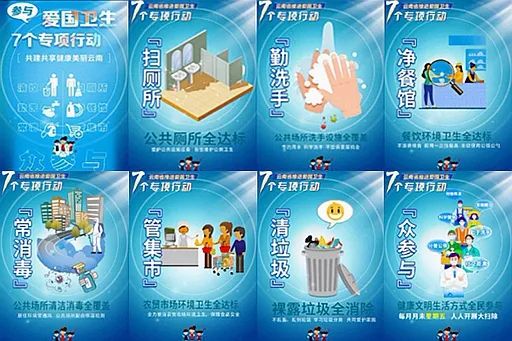
Review in the past
Click on the title below to view.
Original title: People’s Republic of China (PRC) Public Security Administration Punishment Law
Read the original text

